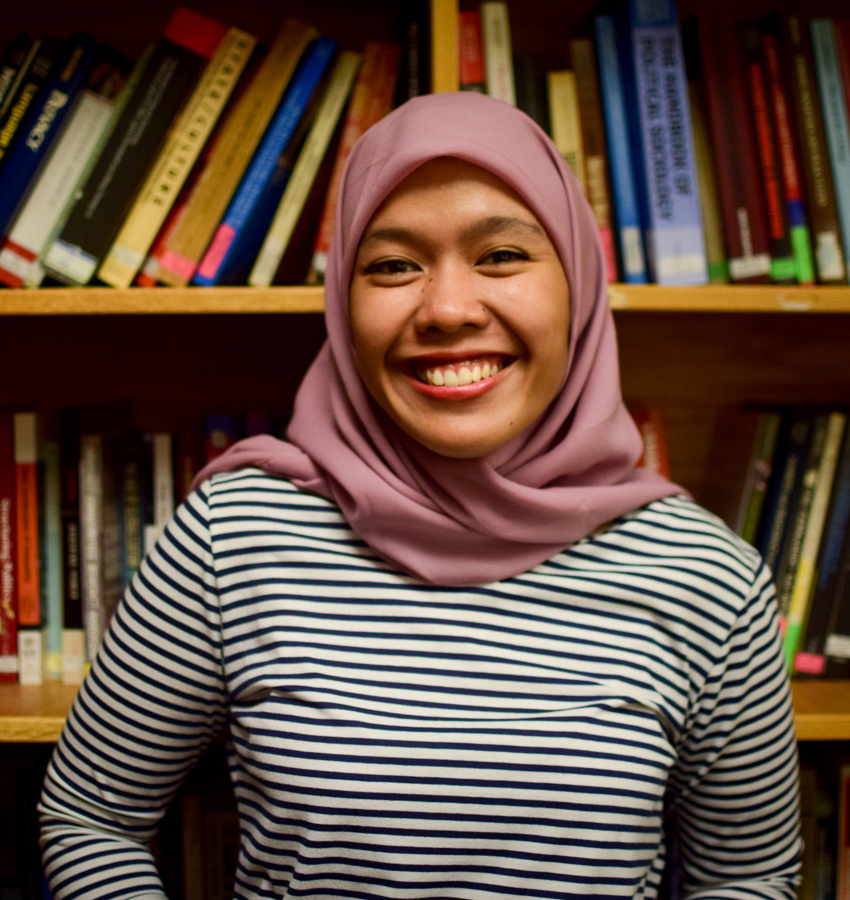Amrina Rosyada's Acclaimed Paper Wins Triple Honors
 “I am grateful that my research can inspire scholars from any discipline to think about a more ethical way of honoring research assistants. After all, science is and will always be a collaborative enterprise.” – Amrina Rosyada, Northwestern University Arryman Scholar
“I am grateful that my research can inspire scholars from any discipline to think about a more ethical way of honoring research assistants. After all, science is and will always be a collaborative enterprise.” – Amrina Rosyada, Northwestern University Arryman Scholar
In a year marked by significant academic achievements for Arryman Scholars, Amrina Rosyada’s groundbreaking paper, "Who Made Mead? The Native Research Assistant as Intellectual," recently garnered three prestigious awards: the Eric R. Wolf Prize from the Society of Anthropology of Work, the Percy Buchanan Prize in Southeast Asia from the Midwestern Conference of Asian Affairs and the Pattana Kitiarsa Prize from the Association for Asian Studies. These accolades underscore the contributions of Rosyada's research to the field of anthropology and highlight the importance of recognizing local research assistants’ intellectual contributions to the discipline.
Rosyada's award-winning paper delves into the often-overlooked contributions of research assistants in anthropological studies, focusing on the case of I Madé Kalér, who played a pivotal role in Margaret Mead's seminal fieldwork in Bali, Indonesia, from 1936 to 1939. While Mead's work has been extensively documented and celebrated, the intellectual and ethnographic labor of her Balinese "native secretary" has largely remained in the shadows. Through meticulous archival research using the Margaret Mead Papers, Rosyada brings to light the critical role that Kalér played in the knowledge-making processes of anthropology.
Rosyada’s abstract states that "from the time of Margaret Mead to Clifford Geertz, Bali has been a place that inspires anthropologists to produce their seminal works. Although many historians of anthropology have recorded their stellar careers, the vital contributions of their research assistants remain under the radar." By highlighting Kalér’s active involvement in ethnographic labor, language training and domestic work, Rosyada challenges the traditional narratives that marginalize the contributions of local research assistants and advocates for a more inclusive understanding of anthropological history.
Rosyada’s impressive research spotlighting research assistants’ important contributions has not gone unnoticed. Her work has been honored with three awards: the Eric R. Wolf Prize, awarded by the Society of Anthropology of Work, recognizes outstanding scholarship that addresses the intersection of work and society; the Percy Buchanan Prize in Southeast Asia, presented by the Midwestern Conference of Asian Affairs, honors exceptional research on Southeast Asia; and the Pattana Kitiarsa Prize from the Association for Asian Studies acknowledges outstanding scholarship in the field of Asian studies, cementing Rosyada's place as an emerging scholar in the discipline.
These accolades reflect the importance of reexamining anthropological historical narratives. Rosyada's work not only sheds light on the intellectual contributions of I Madé Kalér, but calls for a broader acknowledgment of the local research assistants’ role in shaping the field. Her research serves as a critical reminder that producing anthropological knowledge is a collaborative process that involves the active participation of local intellectuals who have historically been overlooked. “Even though my work is historical and anthropological in nature, I have had scholars from a myriad of different disciplines reach out to say that my work has helped raise awareness of the unacknowledged labor of field assistants in their respective fields,” Rosyada observed. “I am grateful that my research can inspire scholars from any discipline to think about a more ethical way of honoring research assistants. After all, science is and will always be a collaborative enterprise.”
As an Arryman Scholar, Amrina Rosyada pushes the boundaries of anthropological research, challenging established narratives and advocating for more inclusive and comprehensive understandings of the discipline's history. Her triple-award-winning paper is a testament to her dedication, intellectual rigor, and commitment to uncovering the hidden histories of anthropology. The recognition from these esteemed organizations celebrates her achievements and paves the way for future scholarship that acknowledges and honors the contributions of local research assistants in the field of anthropology.
The Arryman Scholars program is an initiative funded by the Indonesian Scholarship and Research Support Foundation (ISRSF) in Jakarta, in conjunction with the Equality Development and Globalization Studies (EDGS) program at the Roberta Buffett Institute for Global Affairs at Northwestern University. Both programs are entirely funded by Indonesian donors.